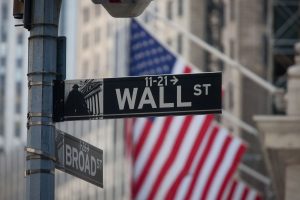The GameStop roller coaster is evidence that the Internet has democratised trading. When a hedge fund—as the professional agent of a group of investors—sells short with the intention of profiting from the decline of a particular company’s stock price, a group of non-professional investors can legally come together through the Internet and buy in to profit on the upward movement of the stock, extracting funds from the short-sellers. We should remember that trading differs from investing. All purchases and sales of securities are trades, but the holding period determines whether one is trading or investing. Trading is a short-term strategy, like house-flipping in real estate for gain. Investing, on the other hand, is a long-term strategy, like buying a house to lease it for income. The motivation of both groups—in trading—is to gain from the others’ loss.
We should remember that trading differs from investing.
To participate in the securities markets is to assume risks of various kinds. This is the principle of caveat emptor, which is the admonition to the buyer to conduct due diligence and exercise caution before purchasing, whatever the holding period will be. The federal securities laws are not, like some state blue sky laws, based on the merit of a company. Lawmakers and regulators have little if any expertise in valuing business ideas, practices, and enterprises. The federal securities laws do not guarantee that stocks listed on exchanges are good buys…the market decides.
The core principle in playing in the market is that one cannot put into that market material misinformation: you can’t lie. This principle provides the structural integrity for the roller coaster and the numerous decisions that construct the features of that company’s particular ride. The securities laws become relevant when information—public statements and manipulation schemes—that matters to decision-makers is false. Manipulation schemes are false statements because participants’ market decisions are considered information about perceived value.
Unless GameStop market participants made materially false statements or took “statement-like” actions—such as parking stock or using wash trades—the market will sort out the gains and losses.
The risk for which a party may seek legal redress is fraud. So long as the company makes sufficient and truthful disclosures and market participants do not make materially false statements or manipulate the market, the government will not interfere with transactions in that security, whatever the merits of any transactional decision. Unless GameStop market participants made materially false statements or took “statement-like” actions—such as parking stock or using wash trades—the market will sort out the gains and losses. In the end, the roller coaster car returns to the loading station—where the ride began—the investors are back to the start, and likely unaffected. The traders, however, may have enjoyed big gains or losses at each other’s expense because, in the end, trading is a zero-sum game (not including transaction costs).
Some suggest that the SEC should “step in” and regulate GameStop-type trading. We ask why and how? The so-called Limit Up Limit Down rule (a market-wide limitation designed to prevent trades in stocks listed on national exchanges from occurring outside of specified price bands, while allowing trading to continue when a price move is temporary), implemented after the 2010 “flash-crash”, and the alternative uptick rule for short-selling (restricting short selling from further driving down the price of a stock that has dropped more than 10 per cent in one day compared to the closing price on the previous day) are already in place. A patronage gate to market participation limits market gains to “professionals” and wealthy players. This is undemocratic and elitist. Limitations on messages posted in subreddit groups that urge members to pile into a specific stock such as GameStop truncates First Amendment rights to free speech that professionals exercise. Perhaps we should recognise that the term “abuse” can be used to characterise lawful conduct that causes the “wrong” party to lose money.
Otherwise, the SEC stands back and lets investors take risks in accordance with their own tolerances. Enforce the rules but let the players play—over time, this philosophy promotes fair markets.
Traders and investors are free to take financial risks that government agencies and public observers might not make, and this “regulatory respect” for the role of independent economic decision-makers is why the price-and-volume charts for publicly traded companies appear as roller coasters, moving up and down over any given time span. The differences in these roller coasters are the amounts and percentages in price changes and the positive and negative slopes over different periods of time. The shape of these rides over time represents thousands of buy, sell, and hold decisions, which are the outcomes of participants’ access to information about the company and about its market, experiences, investor risk-tolerances, and decision-making algorithms.
Another analogy that describes some aspects of the stock market is that of a casino, where gamblers risk their money in the hope that their good fortune will lead to a big return on a bet. Casinos are heavily regulated. Were a casino to be discovered to have magnetized the roulette wheel to dictate winners and losers, engineered a slot machine to never payout, or any number of other practices to further pad the casino’s odds, then the casino will be prosecuted. In the markets for company securities, the SEC will step in if the companies cheat by lying about their financial health or the state of their business, or if brokerage firms or traders engage in market manipulation. The SEC’s role is not to guarantee returns but to see that the market is fairly structured, operates effectively, and that participants play in accordance with the rules of disclosure and truthfulness. Otherwise, the SEC stands back and lets investors take risks in accordance with their own tolerances. Enforce the rules but let the players play—over time, this philosophy promotes fair markets.





















